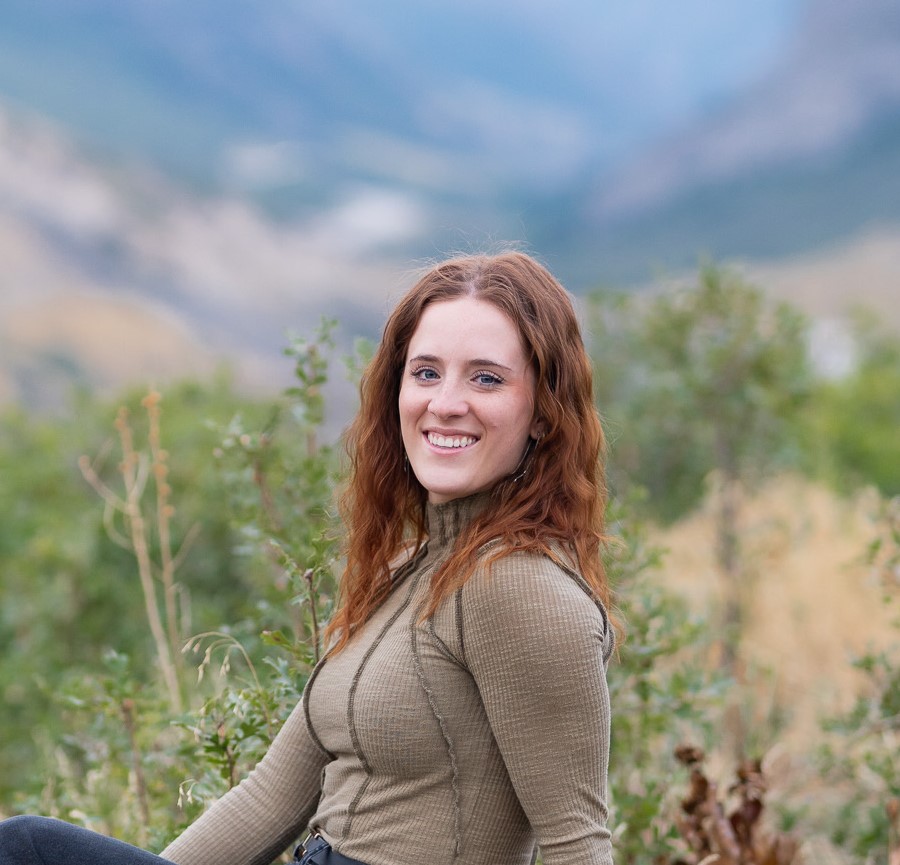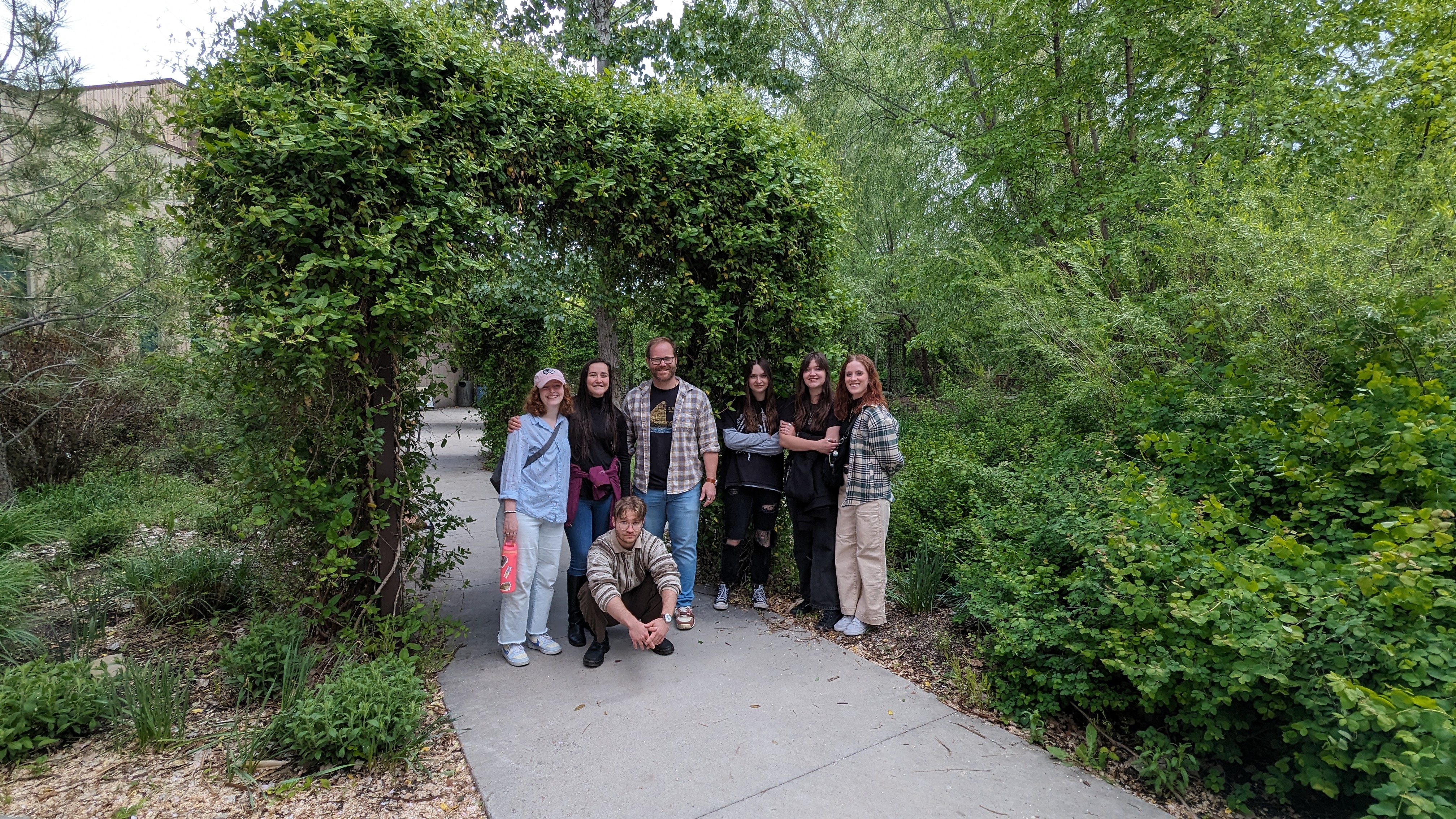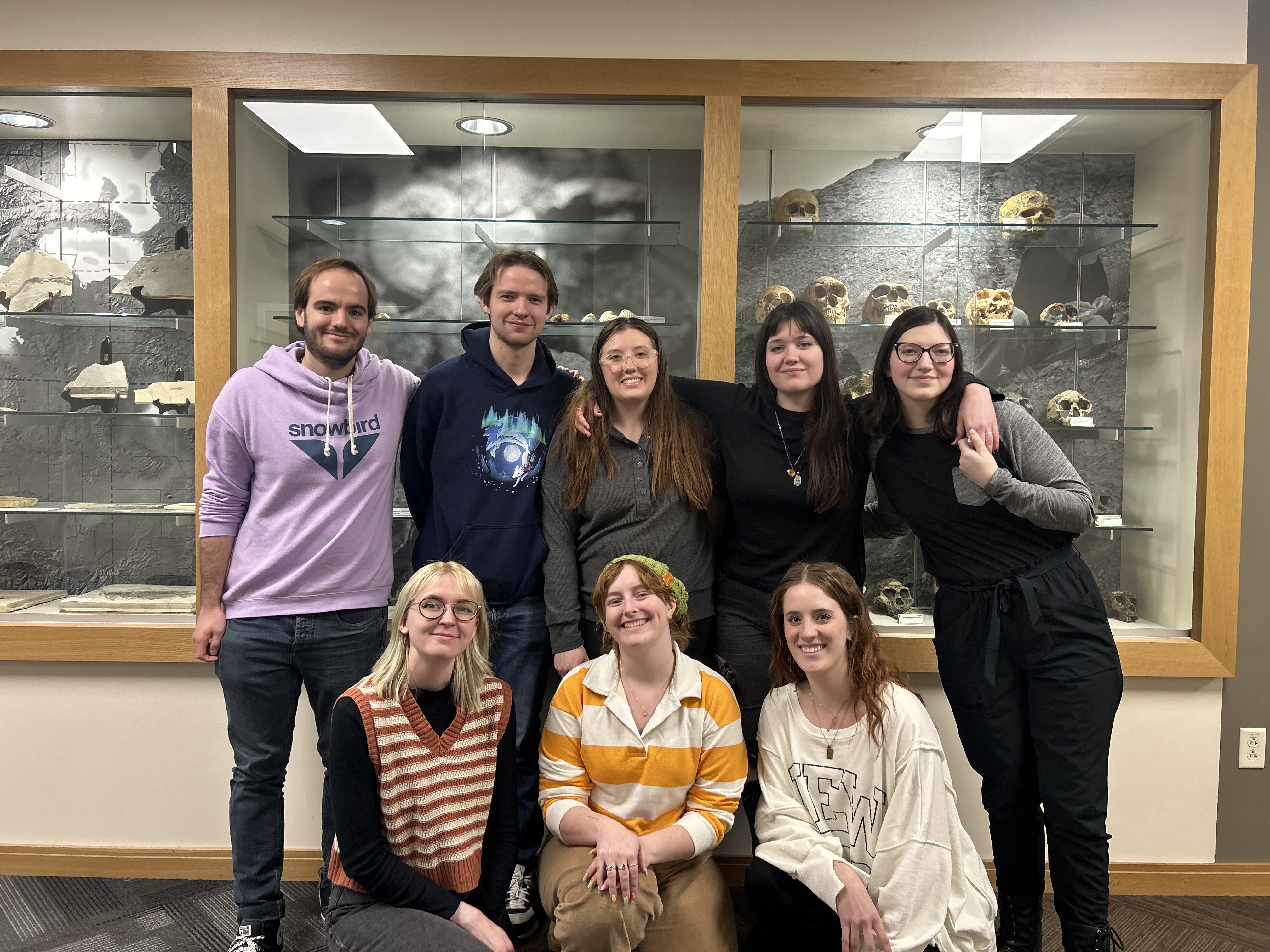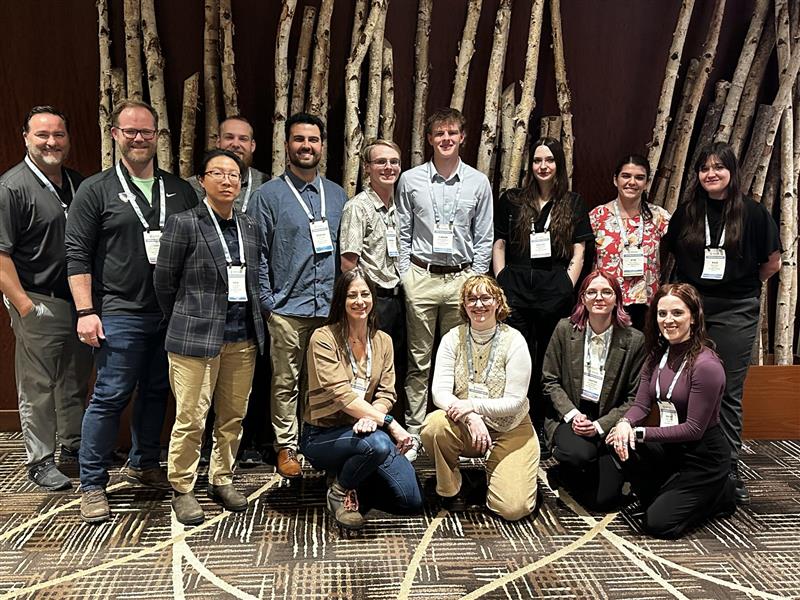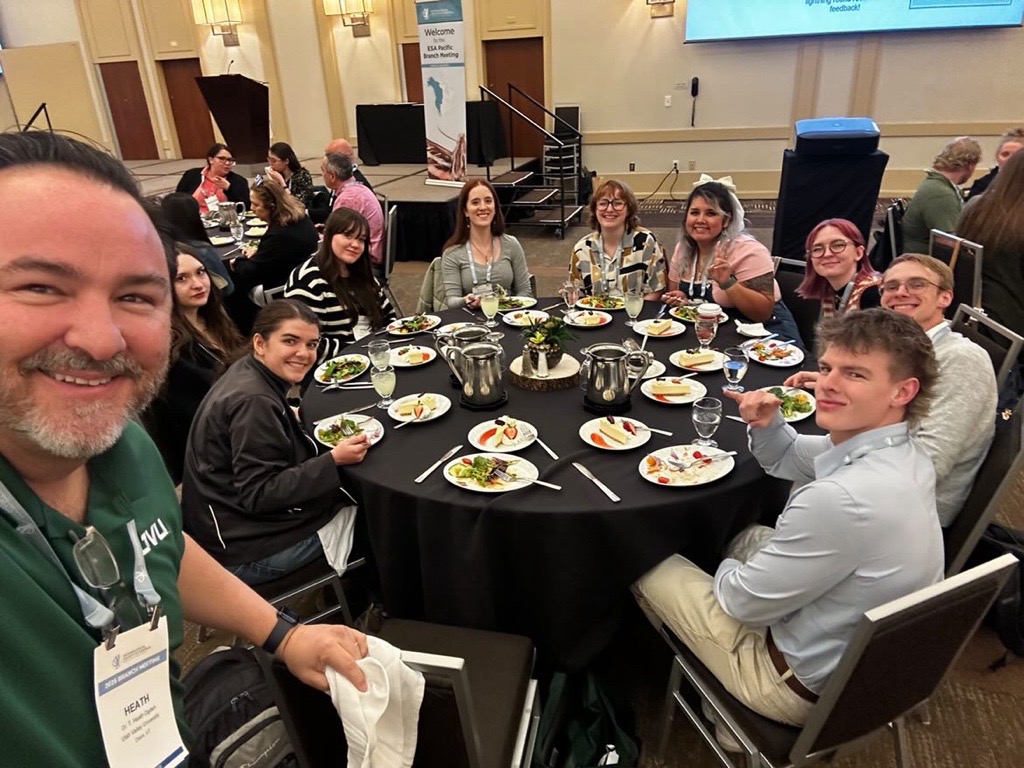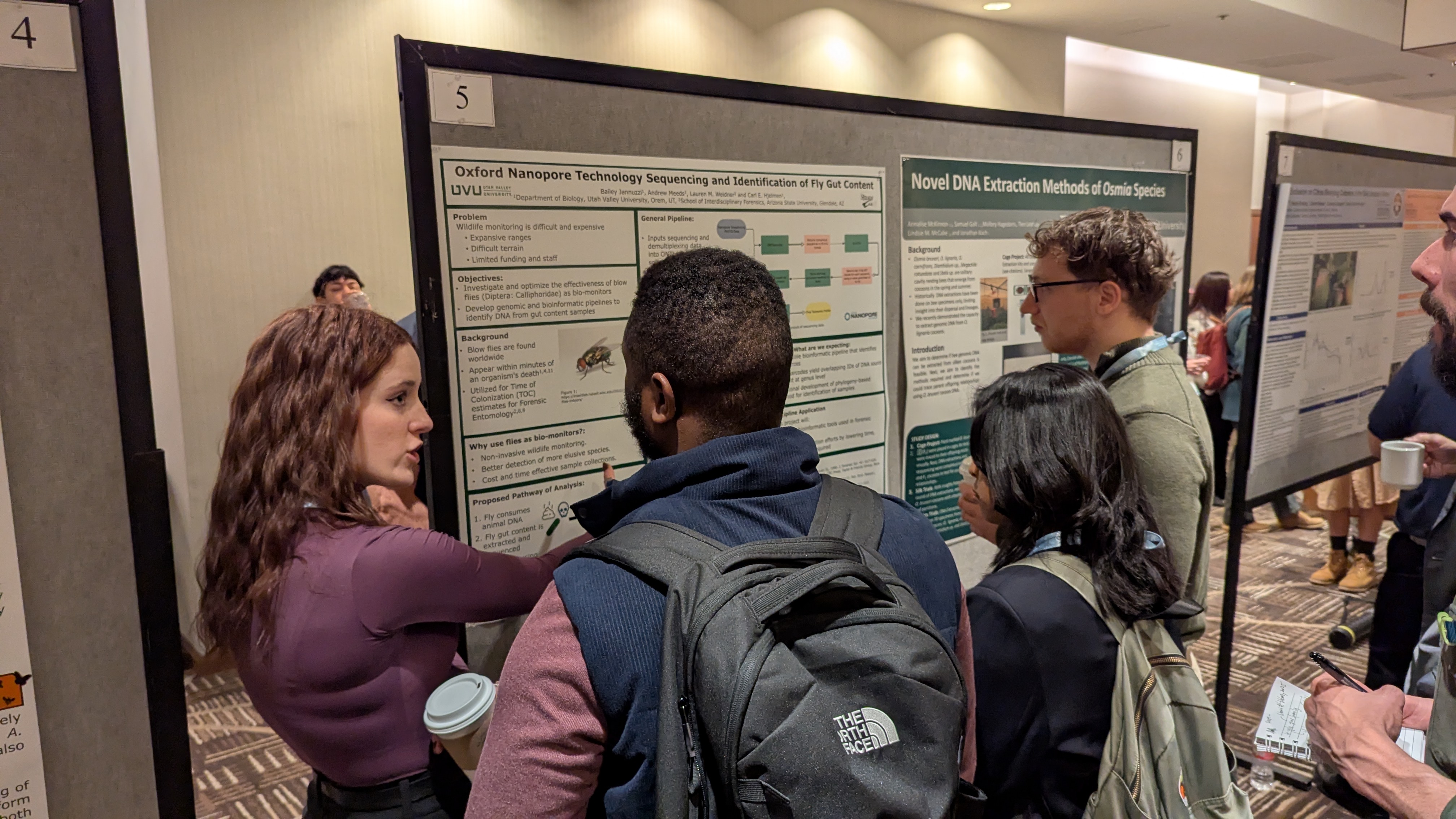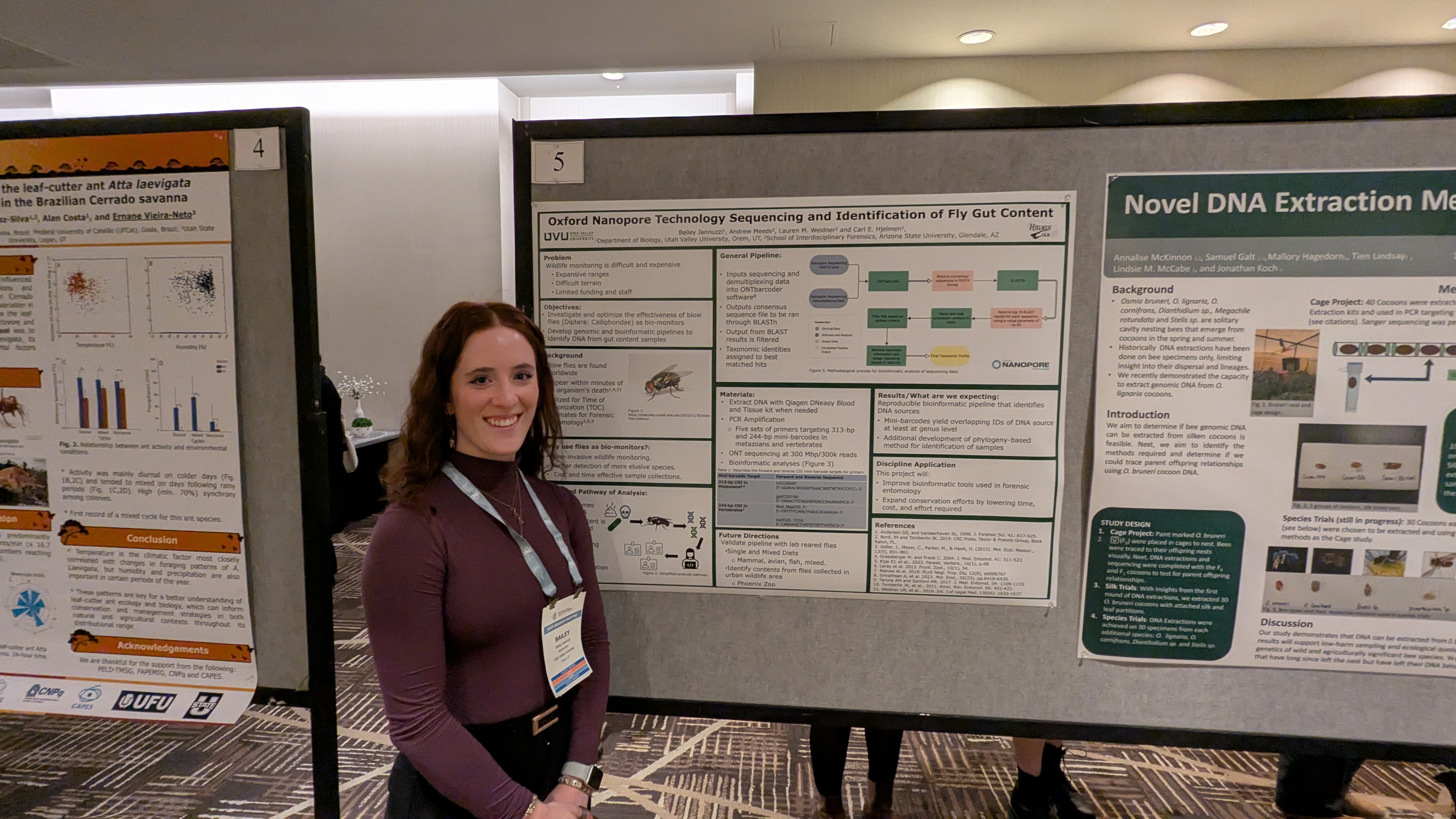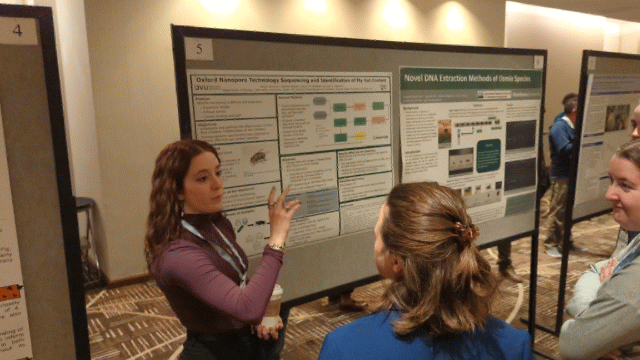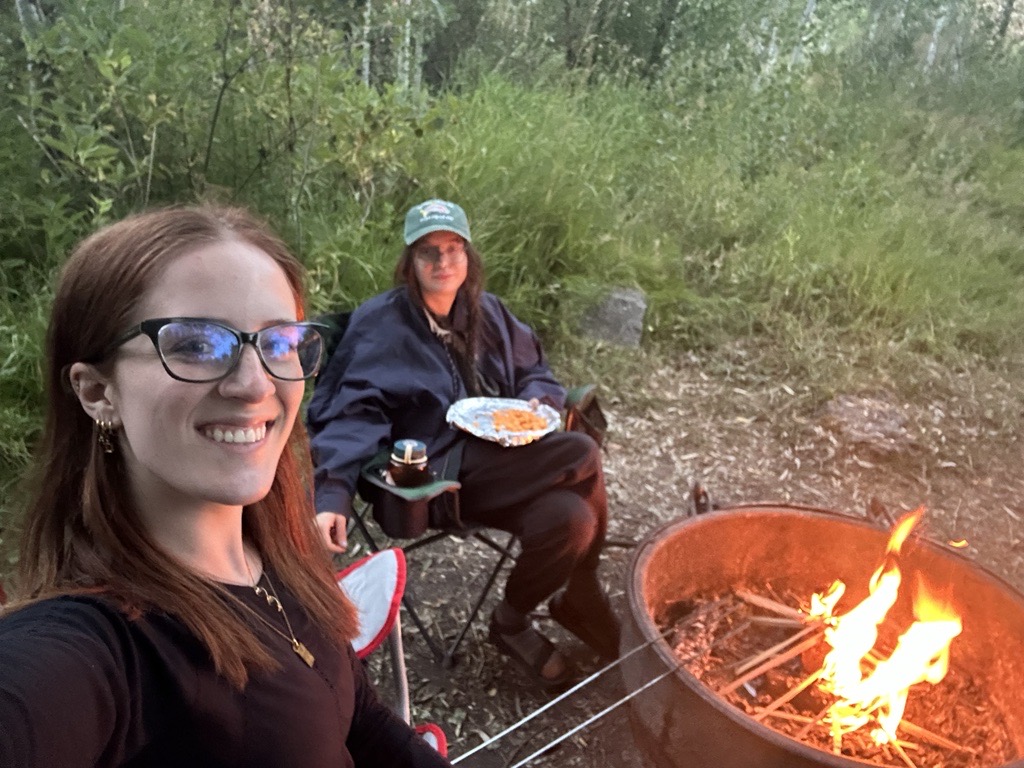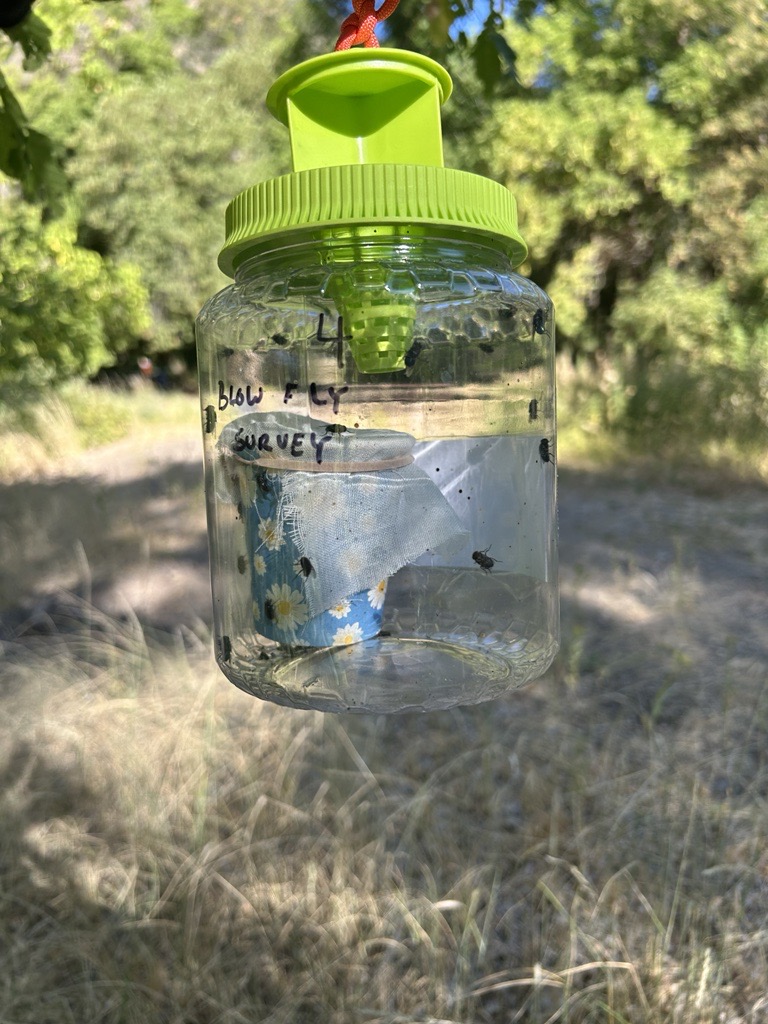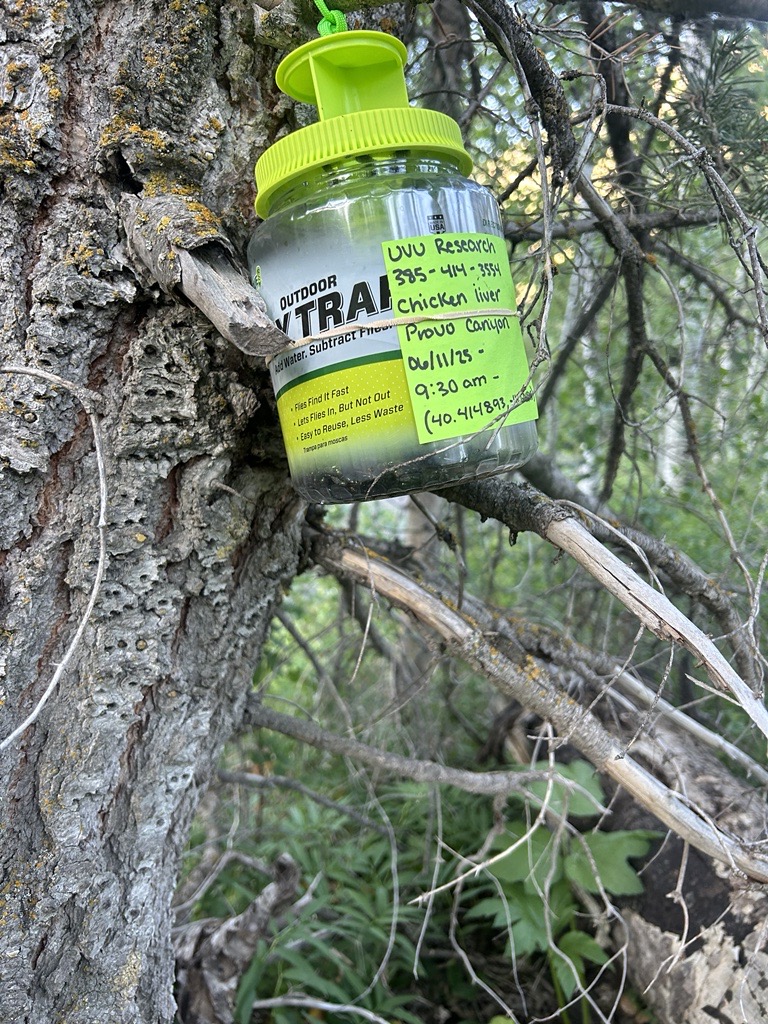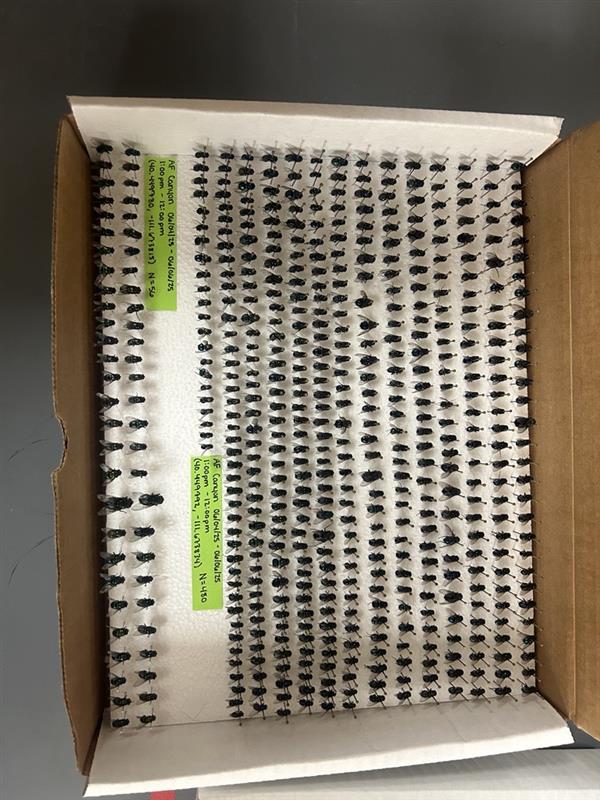
Bailey Jannuzzi
About
Pronouns: She/Her

Hi! I’m Bailey Jannuzzi. I am an undergraduate student at Utah Valley University studying Bioinformatics.
Outside of the lab and school I enjoy:
- Hiking, climbing, or hammocking somewhere in Utah's canyons
- Trying out some new nail art designs
- Listening to music or true crime podcasts
- Watering my forgotten and dehydrated plants
- Starting a new hobby or personal coding project that I will promptly forget about in a few weeks
Recommended Videos
Science communication is another passion of mine. Especially right now, effective, meaningful, and engaging discussion with the public about research is needed. While many classes require students to engage with the literature and listen to talks and presentations, efficient scientific communication isn't widely taught. I believe strongly in learning how to better help everyone learn to discuss, understand, and engage with science, regardless of their educational background.
Here are a few talks I recommend to go check out:
Science communications matters and how to do it better | Jo Filshie Browning
Great talk about how to communicate science to everday people. In the age of social media and misinformation, scientists need to speak on their research themselves, and not just let media sensationalise misunderstood research. Jo also outlines how we as scientists often talk about statistics, but often times statistics can be impersonal and scary to those not equipped with the background necessary to understand what new research means for them. We as scientists need to learn to connect our research and its impacts to real stories and people because while it is exciting to discover something new, science isn't about you, it is about advancing knowledge for the benefit of everyone.
We're About to Lose a Generation of Scientists - And It's Not an Accident
While not focused on science communication, I think this is still a great watch to see a professor reflect on the current state of science and the importance of funding basic science. This video is also an example of how scientists can engage with the public and explain the importance and impacts of basic scientific research.
Sharing science through story: Fergus McAuliffe at TEDxDublin
"Simple language does not mean simple thinking." (12:40). Another good watch reflecting on the relationship between scientists and the public; discussing how language is used differently by the public versus scientists, and how this language barrier affects public perception of science. Fergus brings up these points in his talk: (1) the language of science is objective and complex in order to be clear, but that doesn't resonate with everyday people, (2) the words we often use in science have vastly different contexts to their usage outside of science, (3) science requires a lot detail to be reproducible, but the public doesn't have time to understand every detail. Fergus stresses that science should be told as a story that is easy to relate to, something that draws and keeps attention while still communicating the details in a way that is familiar to a broader audience.
Science and Storytelling | Lucy Hawking
Science, math, and many other subjects often just teach the answers, but like children, curiousity and attention is captured by stories. Lucy talks about how humans have always passed down knowledge through stories because it is easier to see ourselves in the characters. She goes on to talk about how kids today don't seem to be interested in science, she uses gravity as an example. When speaking to kids she phrases things differently, "if you went to Mars, you could jump higher and farther", then asks, "what would it be like to play soccer on Mars?". She describes kids then getting excited, because the science is no longer an abstract thing, but something they can begin to think about and imagine. We can't want to understand something we never see; if more people engage with science not solely from hard to read papers, but through personal connection, people will be able to see scientists not as mysterious beings in a lab, but as people who want to understand and better the world around them, and they can start to imagine themselves as scientists as well.
It's Time to Rethink How We Think About Science | Lisa Fisher
This video discusses two main issues in how media presents research, and how it leads to a skewed perception of science. Often results of studies are oversimplified and mystified, and while audiences don't need every detail, they do need more than just a quick statement that lacks nuance. Media often values bold, shocking, and simple headlines. When we allow for the oversimplification of ideas by thinking that the public cannot or do not want to understand more, we show that we value simplified answers and that more context and research is not needed; that quick answers are the best answers.
What Makes People Engage With Math | Grant Sanderson
While this video is about math and not science communication, it is another example of how people's curiousity is driven by stories. He talks about how the youtube videos that get the most views on his channel are on math concepts that truly do not matter to most people. Then why are so many people watching these videos? Because he starts his videos not by showing an intimidating and complex equation, but showing visually what the equation does and the story behind it first, and then showing the real math. We also can learn from this. When we tell the story of what our research can and is doing first, people's curiousity will follow, that is how we get someone wanting to learn more.
Click here for even more videos I have enjoyed about science communication and fostering interest in learning.
Click here for some books I recommend reading too!
Projects
Oxford Nanopore Technology Sequencing and Identification of Fly Gut Content
PBESA Undergraduate Poster Presentation
Resume
Click here for my current CV
Summary
Bailey Jannuzzi
Majoring in Bioinformatics at Utah Valley University.
- 800 W University Pkwy, Orem UT 84058
- bailey.jannuzzi@gmail.com
Education
Bachelor of Science in Bioinformatics
Fall 2022 - Present
Utah Valley University, Orem, UT
- Current GPA: 3.81
- Expected Graduation Date: Spring 2026
Associate in Science in Biology | High Honors
Graduated: Spring 2025
Utah Valley University, Orem, UT
Achievements
Utah Valley University Dean's List
Spring 2023 - Present
Undergraduate 10-Minute Presentation: SysEB, Behavior and Biodiversity
Entomological Society of America, Annual Meeting 2025
2nd place award
President of The Evolution and Bioinformatics Club
Spring 2025 - Present
Secretary of The Evolution and Bioinformatics Club
Fall 2024 - Spring 2025
Experience
Hjelmen Research Lab
Independent Student Researcher
Spring 2024 - Present
Utah Valley University, Orem, UT
- Constructing reproducible bioinformatic pipelines to identify environmental DNA from blow fly (Diptera: Calliphoridae) gut-content samples
- Gaining wet lab skills performing:
- DNA extractions
- PCR
- Gel Electrophoresis
- DNA purification
Hjelmen Research Lab
Peer Research Collaborator
Spring 2025 - Present
Utah Valley University, Orem, UT
- Assisting with gathering data on blow fly (Diptera: Calliphoridae) diversity and distribution in Utah.
- Conducting field collections.
- Preparing collected specimens through pinning and labeling to be identified.
Genetics Teaching Assistant
Spring 2025
Utah Valley University, Orem, UT
- Supporting students in applying class concepts to solve practical problems.
General Biology Teaching Assistant
Present
Utah Valley University, Orem, UT
- Grading assignments and exams.
- Hosting weekly study and review sessions.
- Assisting with in-class activities.
Skills
I am currently learning R, Python, and BASH. I am actively improving my skills as I work on projects for my lab and courses.
Relevant courses that I am currently taking:
Phylogenetics
Genomics
Some of relevant courses I have taken:
Introduction to Data Structures and Algorithms
Discrete Mathematical Structures I
Object Oriented Programming
Fundamentals of Programming
Database Fundamentals
Introduction to Systems Administration-Linux/UNIX
Data Analysis for Biologists
Bioinformatics Data Skills
Portfolio
Contact
Location
800 W University Pkwy, Orem, UT 84058
bailey.jannuzzi@gmail.com
